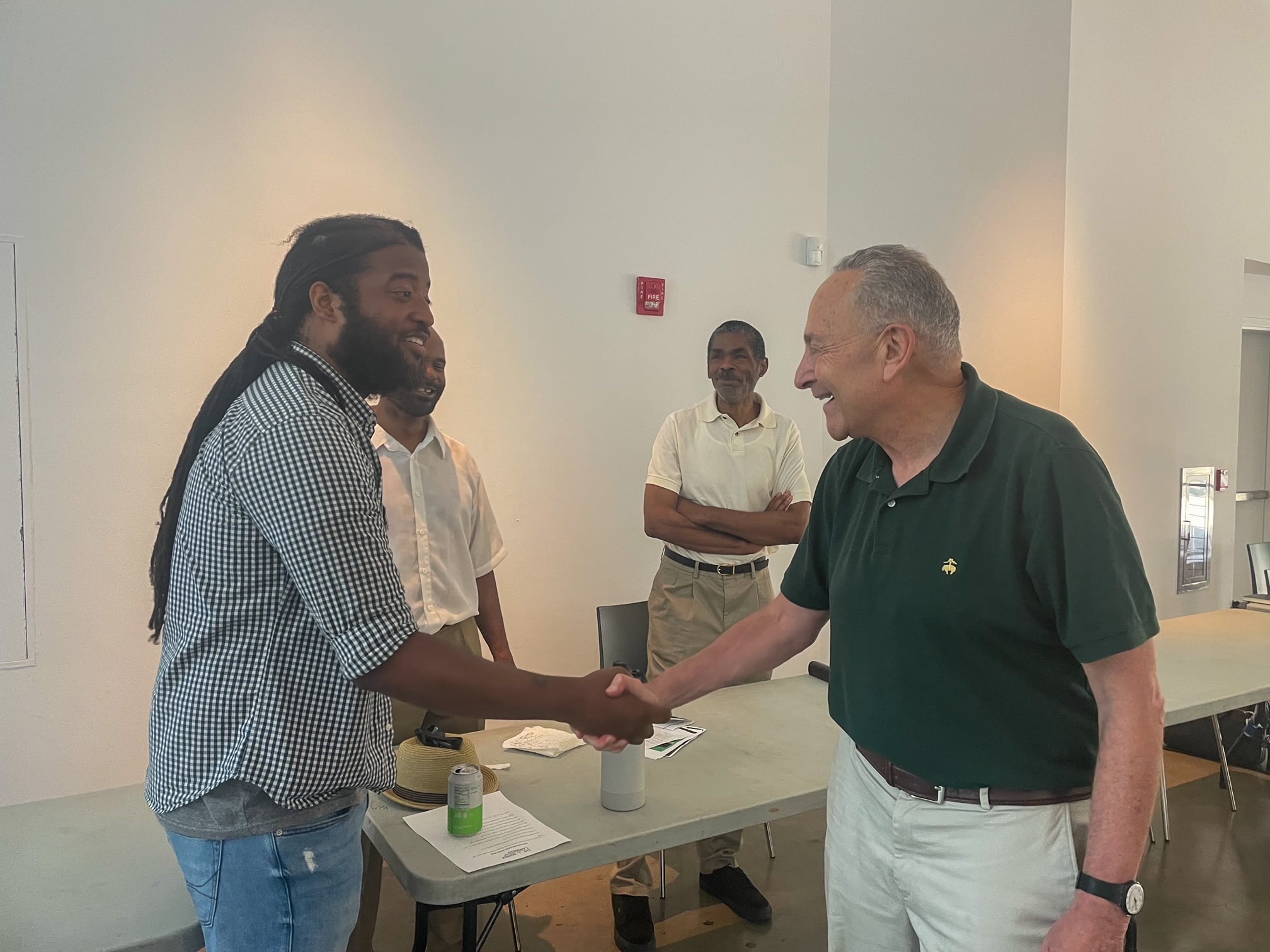On July 24, New York City advocates launched the Bronx Cannabis Hub, a community center to help local residents and others learn about opportunities in the new cannabis industry. New York legalized cannabis for adult use in March 2021, and is currently preparing to officially begin legal sales. Meanwhile, communities are fighting to make sure this will benefit people who suffered decades of arrests and incarceration over cannabis.
The Hub is a collaboration between Bronx Defenders, which provides legal and social aid, and the Bronx Community Foundation, which distributes free food and donates laptops to students, among other work. The Hub is not a physical location per se, but a network of locally provided services.
“There’s not a lot of help or assistance … in creating a business and being successful in the industry. We’re hoping to fill that gap.”
Elected officials and community advocates held a press conference launch at the Bronx Museum of the Arts. They explained that the Hub will work to help “social equity applicants through the licensing application process, with educational services to follow.” That’s in reference to provisions in New York’s cannabis law that specifically reserve a portion of licenses—and funding—for residents with marijuana-related convictions, or their immediate family members and dependents.
“There’s not a lot of help or assistance that currently exists to walk individuals through the application process or the legal needs they may have in creating a business and being successful in the industry,” Eli Northrup, a policy counsel for Bronx Defenders, told Filter. “We’re hoping to fill that gap.”
As Filter has reported, New York State is fast-tracking social equity applicants to be first in line for the first round of dispensary licenses, and is building out retail locations for new licensees to set up shop. The state will issue an expected 100-200 retail licenses, and sales may begin before year’s end. Interested residents have already been contacting the Hub for help being a part of this.
“We’re going to have a screening workshop next week to make sure people meet both criteria, which is ‘justice-involved’ and successful business-ownership, profitable for two years,” Northrup said.
He added that the Office of Cannabis Management, New York’s regulator, “has moved very quickly on these licenses; we don’t know exactly when the application portal will open but we imagine it will be in the month of August, for two months maybe.”
Notable speakers at the launch included Kassandra Frederique, executive director of the Drug Policy Alliance; Bronx Borough President Vanessa Gibson (D); state Senator Gustavo Rivera (D) (currently fighting for legal safe consumption sites across New York); and US Senator for New York Chuck Schumer (D). The Senate majority leader touted the progress made in New York’s legalization, while reminding listeners that he’s currently working to advance a federal legalization bill in Congress.
More on New York’s Social Equity Provisions
New York’s cannabis law includes several provisions focused on “social and economic equity,” as an explainer from the state notes. The law requires the state to automatically expunge past marijuana convictions for things that are no longer criminalized. It also requires that 40 percent of cannabis tax revenue go towards “rebuilding communities harmed by the War on Drugs.”
It goes further by incentivizing cannabis business ownership for people from certain disadvantaged backgrounds, and by requiring regulators to “promote racial, ethnic, and gender diversity” when issuing licenses. This also means prioritizing applicants from “communities disproportionately impacted by the enforcement of cannabis prohibition.”
New York must also create an incubator program to provide business counseling, financial planning and compliance assistance to social equity applicants. The state has set the goal of ultimately half of all adult use business licenses to this group.
Cannabis Prohibition and the Bronx
The Hub is located in an area that has suffered heavily from racialized drug-war policing. Between 2010-2019, four police precincts in the Bronx ranked among the highest in per capita marijuana arrests for the whole city. Another study commissioned by the city comptroller also showed that certain neighborhoods in the Bronx had some of the city’s highest marijuana arrest rates from 2010-2017.
Even after the city decriminalized low-level marijuana possession—with overall arrests dropping dramatically, a quarter of the 437 possession arrests in 2020 still fell on Bronx residents. It’s no coincidence that some of these hardest-hit communities are predominantly Black and Brown, that the Bronx as a whole has higher poverty and unemployment than the city average, or that the borough has lower household incomes than the city or state.
“It’s still going to be an uphill battle. This is about proving social equity in this space can work.”
“We’re prioritizing Bronx sites,” Northrup said, “but it’s open to other people in the city and state. We’re really trying to help people from communities disproportionately policed for cannabis and people who need our help the most, so people who don’t have the resources to do this themselves.”
He acknowledged that while many marijuana-legal states have tried some form of cannabis social equity, they have had poor results. Advocates believe that with a strong law in place, New York can do better.
“But it’s still going to be an uphill battle,” Northrup said. “This is about proving social equity in this space can work. If we can demonstrate that, then as other states legalize and it becomes legal on the federal level, this can be a model.”
Photograph of Sen. Schumer meeting Héctor Gerardo, founder of youth organization One Freedom For All, at the Bronx Cannabis Hub launch, via Schumer’s Twitter account





Show Comments